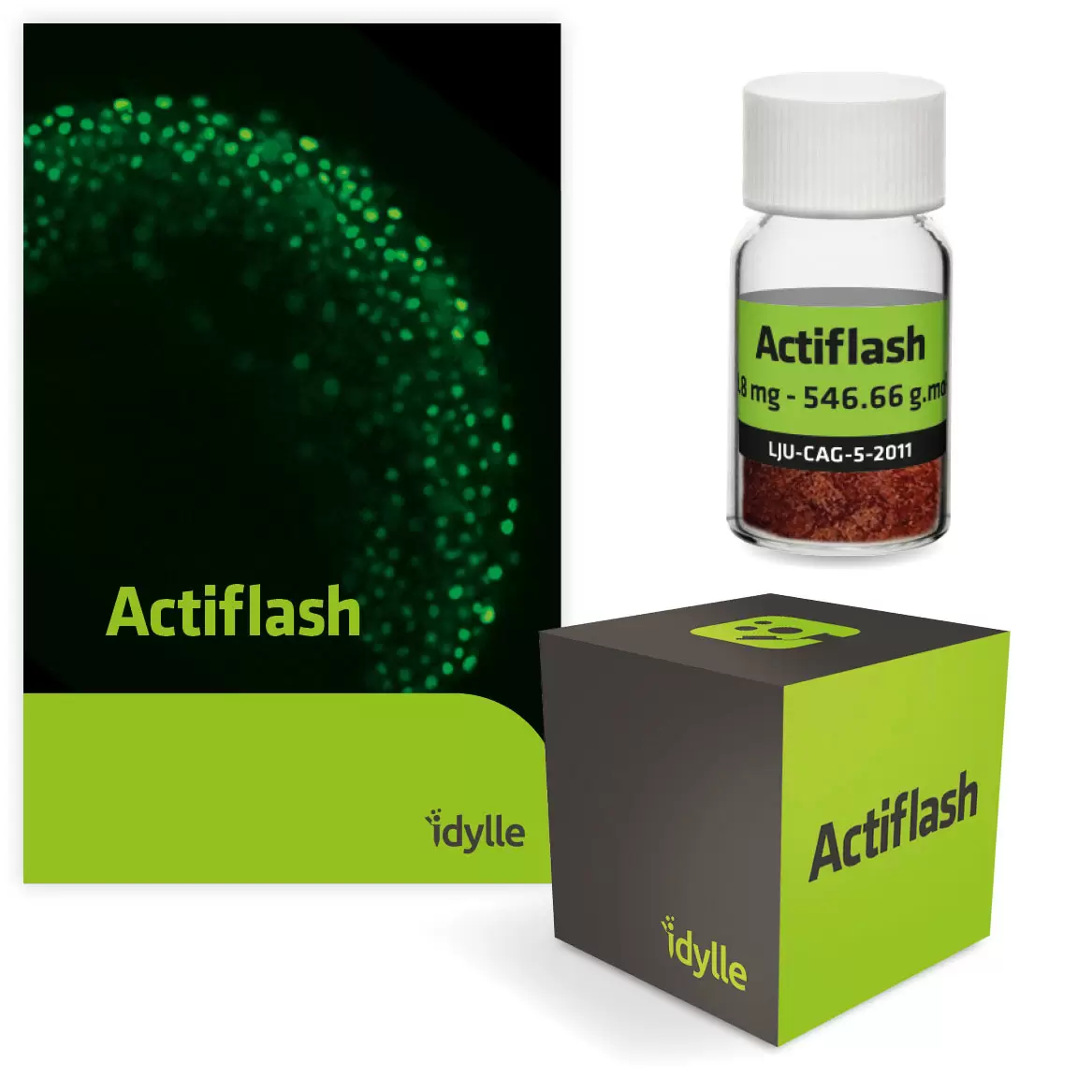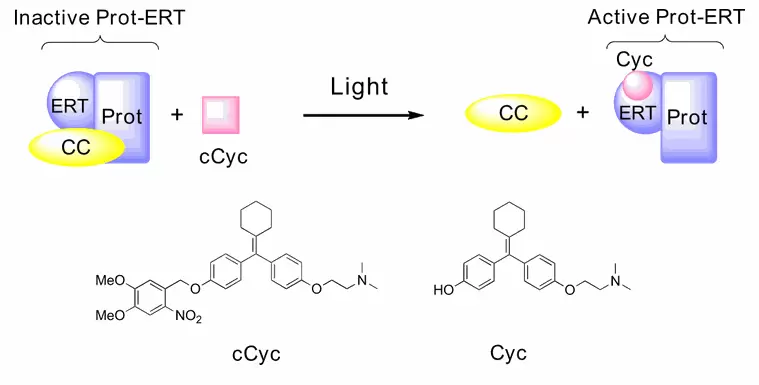Actiflash
Convert your inducible ERT model into a photo-inducible one

Product Description
The stable Tamoxifen-like photoactivable inducer to perform a spatial and temporal control of your favorite proteins under illumination.
Features
- Wide applicative scope
- Simple Conditioning
- Excellent chemical stability
- Favorable wavelength ranges for uncaging
- Photochemical stability

Fig.1. Caged Cyclofen-OH for photocontrol of Protein Activity
Credit: Reproduced with permission from D.K.Sinha et al, Photocontrol of Protein Activity in Cultured Cells and Zebrafish with one and Two-Photon Illumination, Chem., 2010, 11, 653-663.
How to Use
Calibration of the Actiflash concentration
It is advised to first establish the extent of phenotype sought for as a function of the Tamoxifen-OH concentration. Then the concentration of Actiflash used for sample conditioning is fixed at Tamoxifen-OH concentration causing 100% of the desired phenotype (in general 3-5 μM in cultured cells and zebrafish embryos).
Conditioning protocol with Actiflash
Incubate your samples in a serum-free medium for 90 mins, away from light.
Actiflash photoactivation
Illumination of Actiflash may be performed with UV (325-425nm range) light or multiphoton excitation (at 750 and 1064 nm with two- and three-photon excitation, respectively) to release Cyclofen-OH. You can use either benchtop UV lamps or light sources installed on
microscopes.
The calibration of the photoactivation
The objective is to provide enough photons to exhaust the conversion of the Actiflash but without generating detrimental side-effects on the biological sample.
Simply analyze the phenotype recovery with decreasing illumination duration. Then determine the shortest illumination duration leading to 100% uncaging of Actiflash.

